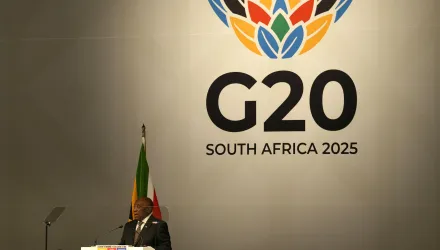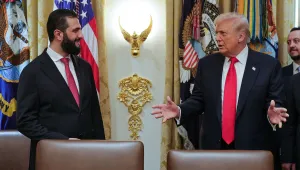A seminar with Ishac Diwan, Lecturer, Harvard Kennedy School, and Youssef Chaitani, Chief of Section, Emerging and Conflict Related Issues Division, United Nations Economic and Social Division for Western Asia.
The presentation will examine how a long lasting Syrian conflict will affect Lebanon, analyzing the weaknesses of the Lebanese system, its strength and sources of resilience. The presentation will conclude by investigating a number of scenarios that would shape a future Lebanon, given internal and external politico-economic forces at play.
About Ishac Diwan:
Ishac Diwan is a lecturer on public policy at the Harvard Kennedy School of Government and is the director for Africa and the Middle East at the growth lab of the Center for International Development.
Current research interests include growth strategies, the political economy of development, and the pro-active management of natural resources, wt a special interest in Africa and the Middle East. Ishac is also directing the Economic and Political Transformation program of the Economic Research Forum.
Ishac got his PhD in Economics from the University of California at Berkeley in 1984. He taught international finance at the New York University’s Business School between 1984-87, before joining the World Bank in 1987, initially in the Research Complex (1987-92) working on the debt crisis of the 1980s.
In 1992, Ishac joined the Bank’s Middle East department, first as the country economist for the West Bank and Gaza (1993-94), as an advisor to the emerging Palestinian Authority, and later, as a regional economist, where he led economic teams in Jordan, Egypt, Morocco, Lebanon, and Yemen. He contributed to the creation of the prime network of economists in the Middle East, the Economic Research Forum, and of a regional policy forum, the Mediterranean Development Forum.
In 1996, Ishac joined the World Bank Institute and led the Economic Policy group (1996-2002), creating the Attacking Poverty Program and contributing to the initiation of the Global Development Network.
Ishac lived in Addis Abeba (2002-07) and Accra (2007-11), as the Bank’s Country Director for Ethiopia and Sudan, and then for Ghana, Liberia, Sierra Leone, Burkina Faso, and Guinea. These were intense years of engagement wt governments, civil society, the private sector, and donors (which explains the lack of visible intellectual production during these years). Ishac led several ambitious initiatives, such as Ethiopia’s Productive Safety Net, Ethiopia’s Protection of Basic Services Program, and in West Africa, initiatives to support the development of natural resources.
Ishac has worked on conflict prevention and on state building (in Palestine, Sudan, Liberia, Sierra Leone, Yemen, Guinea) and has participated in the Sudan Comprehensive Peace Agreement, the Darfur Peace Negotiations, and the Oslo negotiations.
About Youssef Chaitani:
Youssef Chaitani is an Associate in the Belfer Center's Middle East Initiative and Chief of Section, Emerging and Conflict Related Issues Division, United Nations Economic and Social Division for Western Asia. Chaitani's focus areas are the political and development challenges of Arab countries in transition, including bridging the governance deficit in the Arab world and examining the root causes as well as the spillover effects of conflicts in that region. He has worked on a number of related studies and conferences for his organization. Among Chaitani's own publications are Post-Colonial Syria and Lebanon: The Decline of Arab Nationalism and the Triumph of the State, London: I.B. Tauris, 2007. He received his PhD in 2004 from the University of London, where he studied Political Sociology and his MA in Modern Middle Eastern History in 1997 from the American University of Beirut. During his fellowship, Chaitani will be working on the politics of development among multi-groups focusing on Lebanon.


